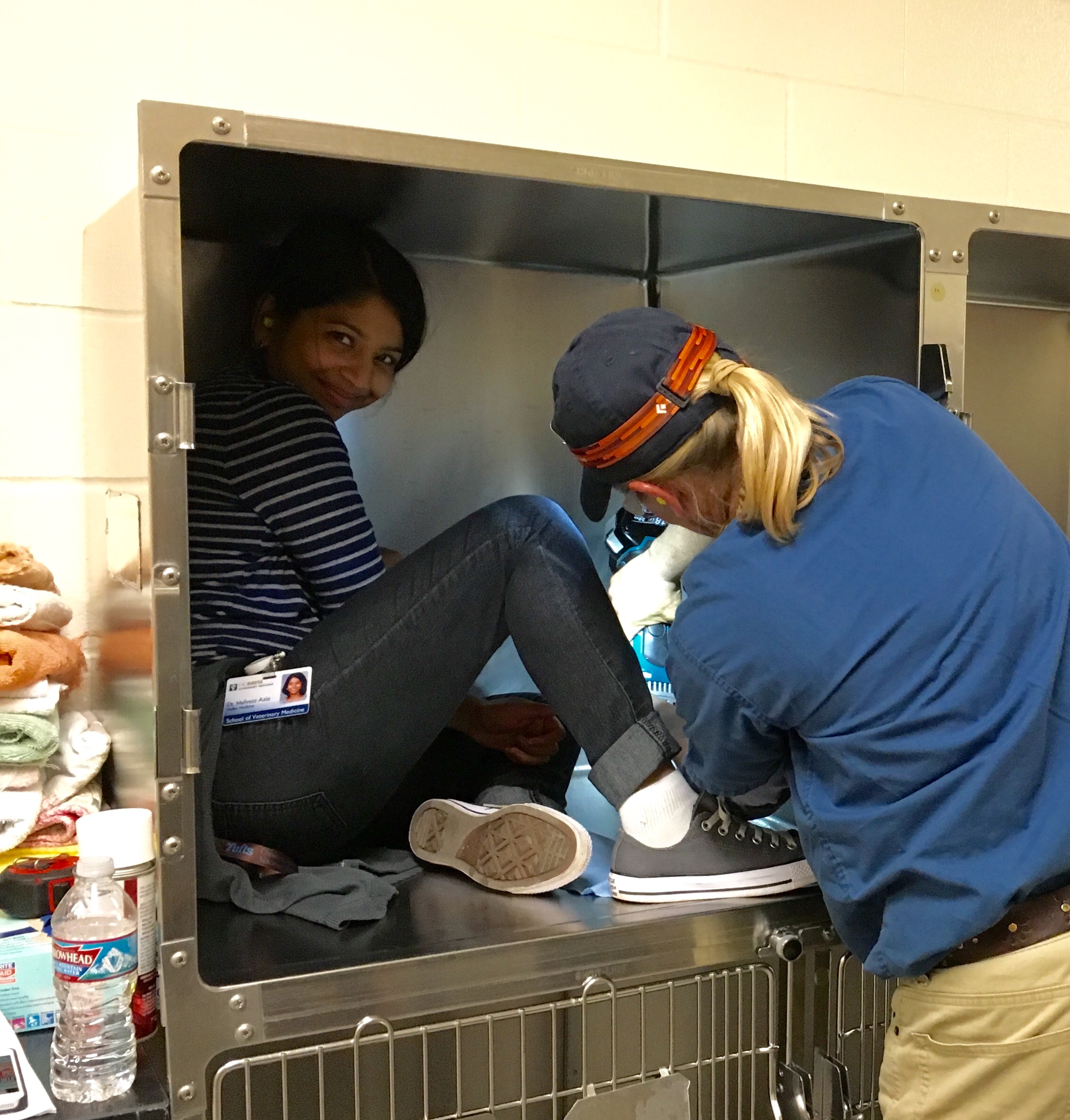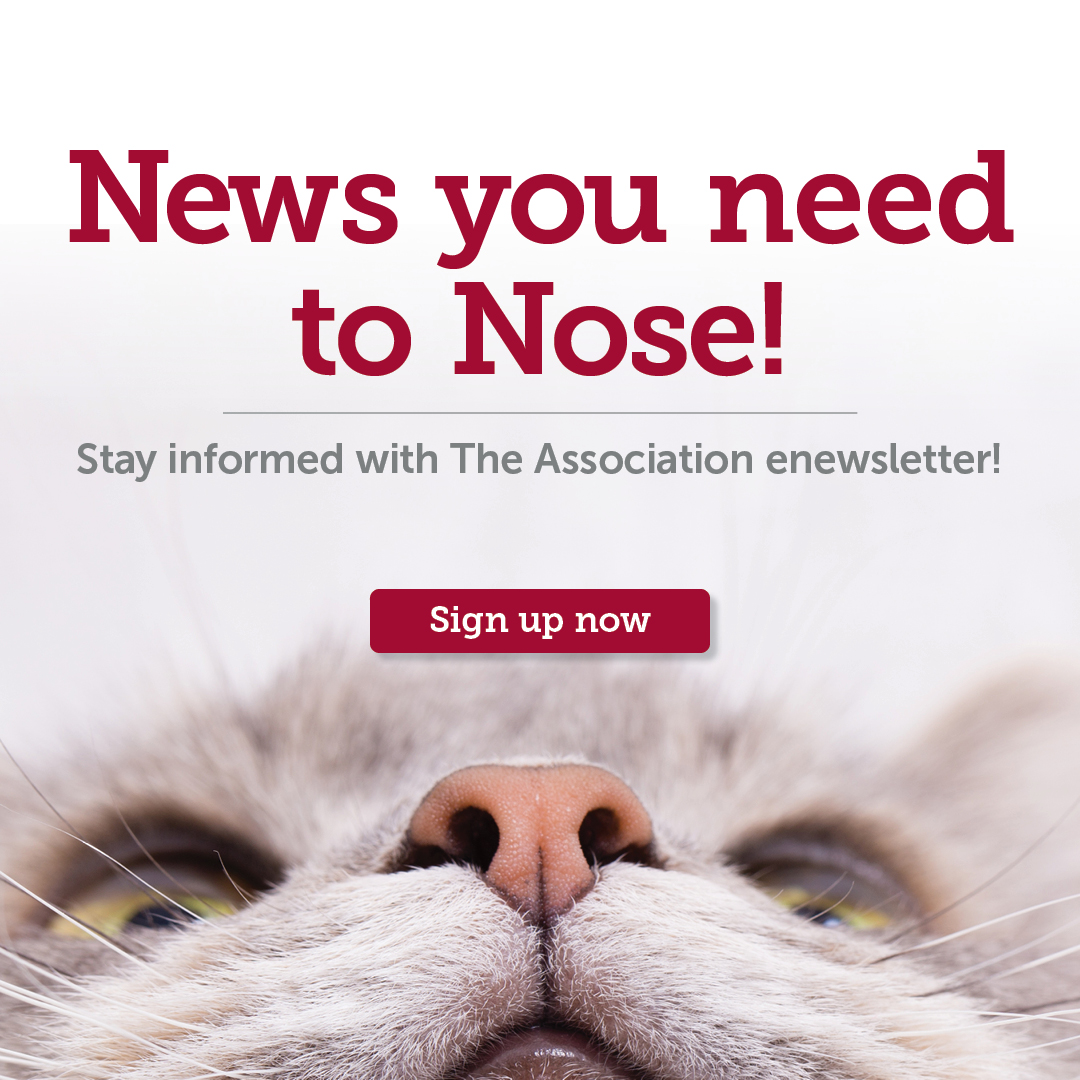News, ideas & inspiration from industry leaders

Member Spotlight: Get to Know Dr. Chumkee Aziz
In her role at The ASPCA, Dr. Aziz focuses on proactive shelter population management and infectious disease prevention in shelters. In her volunteer role as President of the Association of Shelter Veterinarians, she’s created a partnership with The Association. Yeah, we don’t know how she does it all either! Read on for more about this shelter medicine professional extraordinaire.
Name: Chumkee Aziz, DVM, DABVP (Shelter Medicine Practice)
Member of The Association for Animal Welfare Advancement since: 2019
Organizations: ASPCA and ASV
Titles: Senior Director, Shelter Medicine Services, and Board President, respectively
Q&A with Dr. Chumkee Aziz
The Association: What’s the most important part of your job?
Dr. Chumkee Aziz: Helping shelters support the animals in their care AND their communities!
The Association: What is your favorite part of being a shelter veterinarian? The hardest and most challenging?
Dr. A: As a shelter medicine consultant, my favorite part is supporting my shelter vet colleagues and shelter administrators in developing creative ways to support communities, pets and pet owners. The most challenging part of my work is understanding the complex animal welfare landscape across the various communities. As an outsider to the community, I try hard to build strong relationships with shelter colleagues in the local community I’m working with so I can better understand how to support the client and their community. I try to always ensure my consultative approach is inclusive and client-centered.
The Association: In addition to your role at the ASPCA, you are also the President of the Association for Shelter Veterinarians. What do you want folks to know about ASV? How can ASV help shelters?
Dr. A: ASV is here to support shelter veterinary colleagues in both their professional and personal life. ASV works to advance the field of shelter medicine. For example, we are currently reviewing and revising the 2010 ASV Guidelines for Standards of Care in Animal Shelters. We also strive to provide a sense of community for the whole spectrum of shelter veterinarians (practitioners, academics, consultants, s/n vets), so we can learn and grow together as the field of shelter medicine evolves.
The Association: Over the course of your career you have helped thousands of animals. Is there one who stands out, and why?
Dr. A: I’ve been fortunate to work across the country with many shelters for a variety of reasons, so I am going to adapt this question. The cases that stand out to me are the shelters I’ve supported through a deadly infectious disease outbreak (typically distemper, panleuk or parvo). These stand out because in every one of these cases, the shelter not only made it through the acute problem they were facing, but they voluntarily chose to improve their shelter so that these deadly outbreaks were less likely to occur in the future. These are my favorite stories because they show that reinventing oneself is possible when it comes to shelter medicine and shelter operations. And it’s never too late to embrace change.
The Association: What is keeping you healthy and resilient these days?
Dr. A: Yoga, counseling, hiking, & consciously creating healthy and respectful boundaries with family. Still working on work boundaries!
The Association: What’s one thing—industry-related or not—you learned in the past month?
Dr. A: I read the nonfiction book Upstream by Dan Heath, and learned about Accountable Care Organizations (ACOs) within Medicare in the human healthcare industry. ACOs encourage physicians to provide more preventative care and fewer unnecessary diagnostics for patients. The hope is that this model helps proactively maintain the health and well-being of patients, while also reducing emergency room visits. The cost savings in Medicare through the reduction of emergency visits and unneeded diagnostics are then shared with physicians, which serves as incentive for physicians to practice more upstream (proactive) care, as opposed to reactive care. The ACO model has potential for being applied to the veterinary industry and the sheltering industry, so I’ve been thinking about that a lot lately. Someone should run with this idea! Here’s a link that provides an overview of ACOs.
The Association: What’s your hidden talent?
Dr. A: I do plein air pastels (painting outside)! I started doing pastels while visiting Mexico a few years ago and have been doing them ever since. I find them meditative and joyful.
The Association: How have you benefited from your involvement with The Association for Animal Welfare Advancement?
Dr. A: The networking and collaboration with other organizations that The Association has facilitated in our field have been the silver lining to the COVID pandemic. Connecting with one another is what helps advance our field and better support our common cause.
The Association: What are your 2 top tips for veterinary professionals interested in shelter medicine?
Dr. A: 1. Try to always maintain a growth mindset. A growth mindset helps you view all things in life–the good and the bad–as learning opportunities. It reminds us to not be judgmental, to be open to different perspectives, to learn from our mistakes, and to embrace change and challenges. Yes, shelter medicine is about caring for animals and ensuring their individual health and well-being, but it’s also about switching from that reactive mindset to that proactive, growth mindset where we, as veterinary professionals, engage and lead conversations about systemic and structural changes in shelter medicine and sheltering.
2. Compassion fatigue and burnout are REAL. Yes, it’s important to combat these with self-care, BUT also ensure that as a veterinary professional you grow your communication, conflict management and interpersonal skills so you can live and work as your authentic self and find your voice. Shelter medicine is a physically and emotionally demanding discipline. Advocate for yourself by understanding who you are and what your principles are, create boundaries, empower yourself and never, ever be ashamed to ask for help.
Learn More
Website: Association of Shelter Veterinarians
Connect with Dr. Aziz on LinkedIn
Connect with Dr. Aziz on Facebook


